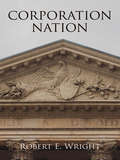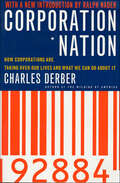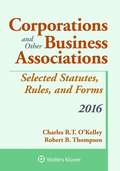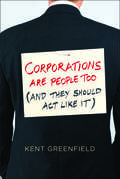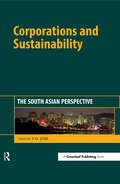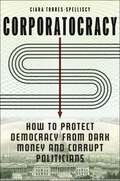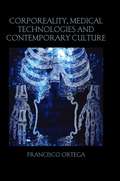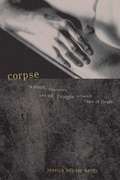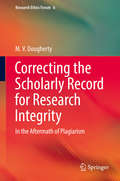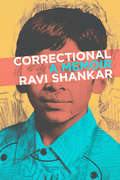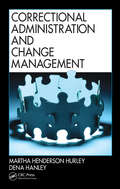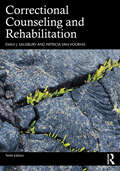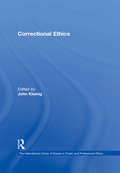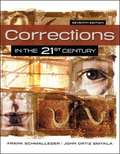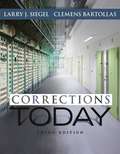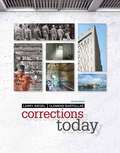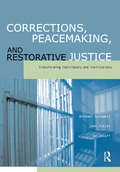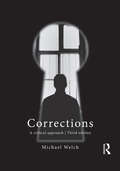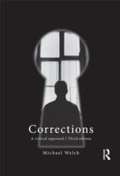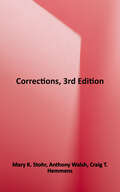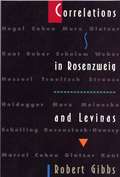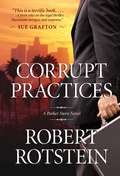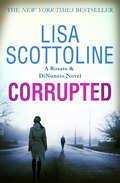- Table View
- List View
Corporation Nation
by Robert E. WrightFrom bank bailouts and corporate scandals to the financial panic of 2008 and its lingering effects, corporate governance in America has been wracked with crises. Amid a weakening system of checks and balances in which corporate executives have little incentive to protect shareholder interests, U.S. corporations are growing larger and more irresponsible at the same time. But dependence on corporate profit was crucial to the early republic's growth, success, and security: despite protests that incorporated business was an inefficient and potentially corrupting system, U.S. state governments chartered more corporations per capita than any other nation--including Britain--effectively making the United States a "corporation nation." Drawing on legal and economic history, Robert E. Wright traces the development and decline of corporate institutions in America, connecting today's financial failures to deteriorating corporate law.In the nineteenth century, checks and balances kept managerial interests aligned with those of stockholders, and public opinion grew supportive as corporations raised billions of dollars to finance infrastructure such as transportation networks, financial systems, and manufacturing operations. But many of these checks and balances were dismantled after the Civil War, allowing leeway for the managerial malfeasance that spiraled into economic crisis in the twenty-first century. Bolstered with archival and original data, including the first complete count of American business corporations before the Civil War, Corporation Nation makes a compelling argument for improved internal governance and more effective external government regulation.
Corporation Nation: How Corporations Are Taking Over Our Lives and What We Can Do About It
by Charles DerberForeword by Ralph Nader. In Corporation Nation Derber addresses the unchecked power of today's corporations to shape the way we work, earn, buy, sell, and think—the very way we live. Huge, far-reaching mergers are now commonplace, downsizing is rampant, and our lines of communication, news and entertainment media, jobs, and savings are increasingly controlled by a handful of global—and unaccountable—conglomerates. We are, in effect, losing our financial and emotional security, depending more than ever on the whim of these corporations. But it doesn't have to be this way, as this book makes clear. Just as the original Populist movement of the nineteenth century helped dethrone the robber barons, Derber contends that a new, positive populism can help the U.S. workforce regain its self-control. Drawing on core sociological concepts and demonstrating the power of the sociological imagination, he calls for revisions in our corporate system, changes designed to keep corporations healthy while also making them answerable to the people. From rewriting corporate charters to altering consumer habits, Derber offers new aims for businesses and empowering strategies by which we all can make a difference.
Corporations And Other Business Associations: Selected Statutes, Rules, And Forms (2016 Edition)
by Charles R. T. O'Kelley Robert B. ThompsonCorporations and Other Business Associations Selected Statutes, Rules, and Forms: 2016 Supplement
Corporations Are People Too: (And They Should Act Like It)
by Kent GreenfieldWhy we’re better off treating corporations as people under the law—and making them behave like citizens Are corporations people? The U.S. Supreme Court launched a heated debate when it ruled in Citizens United that corporations can claim the same free speech rights as humans. Should corporations be able to claim rights of free speech, religious conscience, and due process? Kent Greenfield provides an answer: Sometimes. With an analysis sure to challenge the assumptions of both progressives and conservatives, Greenfield explores corporations' claims to constitutional rights and the foundational conflicts about their obligations in society. He argues that a blanket opposition to corporate personhood is misguided, since it is consistent with both the purpose of corporations and the Constitution itself that corporations can claim rights at least some of the time. The problem with Citizens United is not that corporations have a right to speak, but for whom they speak. The solution is not to end corporate personhood but to require corporations to act more like citizens.
Corporations and American Democracy
by William J. Novak Naomi R. LamoreauxRecent Supreme Court decisions in Citizens United and other high-profile cases have sparked disagreement about the role of corporations in American democracy. Bringing together scholars of history, law, and political science, Corporations and American Democracy provides essential grounding for today’s policy debates.
Corporations and Sustainability: The South Asian Perspective
by Jose P DCorporations and Sustainability: The South Asian Perspective is a collection of contributions from leading academics and practitioners which provides an overview of the key challenges and opportunities related to sustainability in South Asia. The last two decades have seen rapid and often dramatic changes in the institutional, economic and ecological contexts in which firms operating in South Asian economies find themselves. South Asia is increasingly seen both as a driver of global economic growth as well as a barrier to sustainable development. The most significant driver of change in the region has been the economic liberalization attempts of national governments, resulting in easier and faster flows of information, labour and capital between these economies and the rest of the world. Consequently, global environmental and social concerns are increasingly driving governmental and corporate decision-making processes for firms operating in South Asia. In responding to these emerging challenges, firms have begun to re-evaluate and redesign their strategies, structures and processes as well as incorporate sustainability principles into their strategies.Corporations and Sustainability: The South Asian Perspective thus delivers an important perspective for researchers as well as students of master's-level courses on business and environment. It is particularly useful for those trying to understand the key sustainability challenges in the South Asian context as well some of the solutions emerging in the critical areas of heavy industry and also service sectors.
Corporatocracy: How to Protect Democracy from Dark Money and Corrupt Politicians
by Ciara Torres-SpelliscyReveals how corporate greed led to scandal, corruption, and the January 6th insurrection—and how we can stop it from happening againDonald Trump’s false claims of election fraud and the violence of the Capitol riot have made it unavoidably clear that the future of American democracy is in peril. Unseen political actors and untraceable dark money influence our elections, while anti-democratic rhetoric threatens a tilt towards authoritarianism.In Corporatocracy, Ciara Torres-Spelliscy reveals the role corporations play in this dire state of political affairs, and explains why and how they should be held accountable by the courts, their shareholders, and citizens themselves. Drawing on key Supreme Court cases, Torres-Spelliscy explores how corporations have, more often than not, been on the wrong side of history by working to undermine democratic norms, practices, and laws. From bankrolling regressive politicians to funding ghost candidates with dark money, she shows us how corporations subvert the will of the American people, and how courts struggle to hold them and corrupt politicians accountable.Corporations have existed far longer than democracies have. If voters, consumers, and investors are not careful, corporations may well outlive democracy. Corporatocracy brings all of these shadowy tactics to light and offers meaningful legal reforms that can strengthen and protect American democracy.
Corporeality, Medical Technologies and Contemporary Culture: Corporeality, Medical Technologies And Contemporary Culture (Birkbeck Law Press)
by Francisco OrtegaThis book examines the confusions and contradictions that manifest in prevalent attitudes towards the body, as well as in related bodily practices. The body is simultaneously our reference for the certainties of nature and the locus of a desire for transformation and reinvention. The body is at the same time worshipped and despised; an object of desire and of design. Francisco Ortega analyses how the body has become both a screen for the projection of our ideas and imaginings about ourselves and conversely an object of suspicion, anxiety, and discomfort. Addressing practices of corporeal ascesis (such as bodybuilding and dietetics), medical technologies, and radical anatomical modifications, Ortega documents the ambiguous legacy of a western theoretical tradition that has always despised the body. Utilising a theoretical framework that is mainly informed by the phenomenology of the body, feminist theory, disability studies and the thought of Michel Foucault, Corporeality, Medical Technologies and Contemporary Culture address several ethical and psychological issues associated with the experience and perception of the body in our cultural landscape. Drawing on these diverse areas of philosophical and analytical work, this book will interest those researching Law, Medicine, and Sociology.
Corpse: Nature, Forensics, And The Struggle To Pinpoint Time Of Death
by Jessica Snyder SachsWhen detectives come upon a murder victim, there's one thing they want to know above all else: When did the victim die? The answer can narrow a group of suspects, make or break an alibi, even assign a name to an unidentified body. But outside the fictional world of murder mysteries, time-of-death determinations have remained infamously elusive, bedeviling criminal investigators throughout history. Armed with an array of high-tech devices and tests, the world's best forensic pathologists are doing their best to shift the balance, but as Jessica Snyder Sachs demonstrates so eloquently in Corpse, this is a case in which nature might just trump technology: Plants, chemicals, and insects found near the body are turning out to be the fiercest weapons in our crime-fighting arsenal. In this highly original book, Sachs accompanies an eccentric group of entomologists, anthropologists, biochemists, and botanists--a new kind of biological "Mod Squad"--on some of their grisliest, most intractable cases. She also takes us into the courtroom, where "post-O. J. " forensic science as a whole is coming under fire and the new multidisciplinary art of forensic ecology is struggling to establish its credibility. Corpse is the fascinating story of the 2000year search to pinpoint time of death. It is also the terrible and beautiful story of what happens to our bodies when we die.
Correcting the Scholarly Record for Research Integrity: In the Aftermath of Plagiarism (Research Ethics Forum #6)
by M. V. DoughertyThis volume is the first book-length study on post-publication responses to academic plagiarism in humanities disciplines. It demonstrates that the correction of the scholarly literature for plagiarism is not a task for editors and publishers alone; each member of the research community has an indispensable role in maintaining the integrity of the published literature in the aftermath of plagiarism. If untreated, academic plagiarism damages the integrity of the scholarly record, corrupts the surrounding academic enterprise, and creates inefficiencies across all levels of knowledge production. By providing case studies from the field of philosophy and related disciplines, the volume exhibits that current post-publication responses to academic plagiarism are insufficient. It catalogues how humanities disciplines fall short in comparison with the natural and biomedical sciences for ensuring the integrity of the body of published research. This volume provides clarity about how to conceptualize the scholarly record, surveys the traditional methods for correcting it, and argues for new interventions to improve the reliability of the body of published research. The book is valuable not only to those in the field of philosophy and other humanities disciplines, but also to those interested in research ethics, meta-science, and the sociology of research.
Correctional
by Ravi ShankarThe first time Ravi Shankar was arrested, he spoke out against racist policing on National Public Radio and successfully sued the city of New York. The second time, he was incarcerated when his promotion to full professor was finalized. During his ninety-day pretrial confinement at the Hartford Correctional Center—a level 4, high-security urban jail in Connecticut—he met men who shared harrowing and heart-felt stories. The experience taught him about the persistence of structural racism, the limitations of mass media, and the pervasive traumas of twenty-first-century daily life. Shankar’s bold and complex self-portrait—and portrait of America—challenges us to rethink our complicity in the criminal justice system and mental health policies that perpetuate inequity and harm. Correctional dives into the inner workings of his mind and heart, framing his unexpected encounters with law and order through the lenses of race, class, privilege, and his bicultural upbringing as the first and only son of South Indian immigrants. Vignettes from his early life set the scene for his spectacular fall and subsequent struggle to come to terms with his own demons. Many of them, it turns out, are also our own.
Correctional Administration and Change Management
by Martha Henderson Hurley Dena HanleyChange is an inevitable part of any correctional institution, as new trends and initiatives constantly bombard the system. However, as budgetary constraints increasingly require correctional agencies to do more with less, a paradigm shift in the way they operate is imperative to ensure success. Correctional Administration and Change Management exam
Correctional Counseling and Rehabilitation
by Emily J. Salisbury Patricia Van VoorhisThis text presents the foundations of correctional treatment and intervention, including overviews of the major therapeutic modalities that are effective when intervening with justice-involved individuals to reduce ongoing system involvement and improve well-being. The text also focuses on diagnosis of mental illness, correctional assessment and classification, case planning strategies, and the necessary counseling and human service skills for working alongside system-involved people. Specific chapters focus on working with women, individuals struggling with substance abuse, and clients with severely antisocial behavior such as psychopathy. Written to help students prepare for a career in correctional counseling or forensic social work, the book also assists working professionals (e.g., institutional and community corrections staff) to determine which strategies might be most effective with their clients. Revised using person-centered language, the tenth edition includes a new chapter focused on the necessary relational skills that probation and parole officers must have to be agents of behavior change. The content is divided into four parts: (1) A Professional Framework for Correctional Counseling; (2) Client Assessment, Diagnosis, Classification, and Case Planning; (3) Contemporary Approaches for Correctional Counseling and Treatment, and (4) Effective Correctional Interventions for Special Populations. This book is appropriate for upper-level undergraduates and graduate students in Criminal Justice and Criminology, Psychology, and Social Work programs, as well as correctional practitioners looking for professional development to enhance behavior change among clients.
Correctional Ethics (The\international Library Of Essays In Public And Professional Ethics Ser.)
by John KleinigCorrectional Ethics gathers the most prominent contributions to this burgeoning field, ranging from the philosophy of punishment through to ethical appraisals of incarceration, the professional responsibilities of prison personnel, and formative work in restorative justice. In addition, it provides an annotated research agenda to help shape the development of a comprehensive correctional ethic. For those working in correctional ethics, this collection provides an essential resource.
Corrections In The 21st Century
by Frank Schmalleger John Ortiz SmyklaCorrections in the 21st Century uses a practical approach to introduce students to the ideas and practices characteristic of modern corrections while equipping them with the skills necessary to succeed in the field. Its approach to corrections includes a thorough description of correctional ideology, a comprehensive overview of correctional practice, and the development of personal skills applicable to the corrections field.
Corrections Today
by Clemens Bartollas Larry SiegelGet a frontline look at the field of corrections with CORRECTIONS TODAY, 3rd Edition. This briefer, visual, paperback book is ideal for readers who are interested in real-world concepts and applications. It examines the field of corrections through the lens of readers--perhaps like you--who are giving serious thought to a career in the field or are now working in corrections while seeking an advanced degree in order to obtain a promotion or switch job paths. CORRECTIONS TODAY, 3rd Edition, offers a practical, engaging, career-focused, and authoritative introduction to corrections.
Corrections Today
by Larry J. SiegelGet a frontline look at the field of corrections with CORRECTIONS TODAY, 4th Edition. This briefer, visual, paperback alternative to hardback Introduction to Corrections texts is ideal for readers who are interested in real-world concepts and applications. It examines the field of corrections through the lens of students -- perhaps like you -- who are giving serious thought to a career in the field or are working in corrections while seeking an advanced degree in order to be promoted or switch job paths. Updated with new professional profiles and insightful coverage of restorative justice, special offender populations, the use of private prisons, and many other timely topics, the fourth edition offers a practical, engaging, career-focused, and authoritative introduction to corrections.
Corrections, Peacemaking and Restorative Justice: Transforming Individuals and Institutions
by Bo Lozoff John Fuller Michael BraswellThis book views peacemaking as a broad, encompassing process that is expressed in many different shapes and forms. It blends ancient-wisdom traditions, peacemaking criminology, and restorative justice principles as a way of intervening with offenders in both institutional and community-based settings. Philosophical and spiritual contexts for peacemaking are presented that form a foundation for understanding the potential for peacemaking in criminological thought, the criminal justice system, and society in general.
Corrections: A Critical Approach
by Michael WelchCorrections: A Critical Approach, 3rd edition confronts mass imprisonment in the United States, a nation boasting the highest incarceration rate in the world. This statistic is all the more troubling considering that its correctional population is overrepresented by the poor, African-Americans, and Latinos. Not only throwing crucial light on matters involving race and social class, this book also identifies and examines the key social forces shaping penal practice in the US - politics, economics, morality, and technology. By attending closely to historical and theoretical development, the narrative takes into account both instrumental (goal-oriented) and expressive (cultural) explanations to sharpen our understanding of punishment and the growing reliance on incarceration. Covering five main areas of inquiry - penal context, penal populations, penal violence, penal process, and penal state - this book is essential reading for both undergraduate and graduate students interested in undertaking a critical analysis of penology.
Corrections: A Critical Approach (3rd Edition)
by Michael WelchCorrections: A Critical Approach, 3rd edition confronts mass imprisonment in the United States, a nation boasting the highest incarceration rate in the world. This statistic is all the more troubling considering that its correctional population is overrepresented by the poor, African-Americans, and Latinos. Not only throwing crucial light on matters involving race and social class, this book also identifies and examines the key social forces shaping penal practice in the US - politics, economics, morality, and technology. By attending closely to historical and theoretical development, the narrative takes into account both instrumental (goal-oriented) and expressive (cultural) explanations to sharpen our understanding of punishment and the growing reliance on incarceration. Covering five main areas of inquiry - penal context, penal populations, penal violence, penal process, and penal state - this book is essential reading for both undergraduate and graduate students interested in undertaking a critical analysis of penology.
Corrections: A Text/Reader
by Anthony Walsh Mary K. Stohr Craig T. HemmensThe Third Edition of Corrections: A Text/Reader provides students with the best of both worlds—a brief authored text accompanied by carefully selected and edited readings. Explaining all major course topics helps students understand the impact of new directions and policies in corrections. Policy-oriented original research articles demonstrate how research drives these advances. Designed throughout to enhance understanding, the book includes a helpful "How to Read a Research Article" section before the first reading, as well as article introductions, photographs, and discussion questions that capture students’ interest and help them develop their critical thinking skills. New to the Third Edition - Nearly 75% of the journal articles have been updated to introduce students to current research on important topics such as racial and ethnic disparities in probation, influences on inmate misconduct, transgender prison inmates, and lethal injection protocol. - Updated and expanded coverage of ethical considerations, special populations, and the history of corrections provides students with the context for understanding policy decisions and their consequences, both past and present. New Sections on Ethics (Section IV) and the Death Penalty (Section XVI) offer students insights into key issues in corrections today. - More coverage on disparities in sentencing and drug courts encourages students to think critically about U.S. drug policies and their effectiveness. - Additional content on federal procedures and private prisons shows real examples of private prisons, their profit motives, and the effect they have on the correctional system. - The most current data, facts, statistics, and research are included throughout the book to provide students with insights into the world of corrections today.
Correlations in Rosenzweig and Levinas
by Robert GibbsRobert Gibbs radically revises standard interpretations of the two key figures of modern Jewish philosophy--Franz Rosenzweig, author of the monumental Star of Redemption, and Emmanuel Levinas, a major voice in contemporary intellectual life, who has inspired such thinkers as Derrida, Lyotard, Irigaray, and Blanchot. Rosenzweig and Levinas thought in relation to different philosophical schools and wrote in disparate styles. Their personal relations to Judaism and Christianity were markedly dissimilar. To Gibbs, however, the two thinkers possess basic affinities with each other. The book offers important insights into how philosophy is continually being altered by its encounter with other traditions.
Correspondence of Benedict de Spinoza
by Benedict De SpinozaBenedict de Spinoza was one of the great rationalists of 17th century philosophy, he helped lay the groundwork for the 18th century Enlightenment and modern biblical criticism. His correspondences help shed light on his ethical opinions and positions. Required reading for those who wish a deeper understanding of the writings of Benedict de Spinoza.
Corrupt Practices: A Parker Stern Novel (Parker Stern)
by Robert RotsteinParker Stern's legal career is on the rise. But when his mentor Harmon Cherry commits suicide, Parker gets stage fright so severe that he becomes paralyzed whenever he steps into a courtroom. Rich Baxter, an ex-colleague, calls from jail and asks Parker to represent him. Baxter has been charged with embezzling millions from his church, a powerful cult that Parker despises. At their first meeting, Baxter surprises Parker by claiming that Harmon Cherry did not commit suicide, but was murdered by someone connected to the church. Parker doesn't believe it until Baxter is found hanging in his cell. Ultimately, Parker agrees to represent Baxter's father in a lawsuit brought by the church. In the process of representing his client and uncovering the truths behind the deaths of his friends, Parker must overcome his own long-buried secrets and deep-seated fears.
Corrupted (Rosato & DiNunzio)
by Lisa ScottolineHot on the heels of ACCUSED and BETRAYED, CORRUPTED is the third legal thriller in New York Times bestseller Lisa Scottoline's electrifying Rosato & Di Nunzio series.For Bennie Rosato, founder of the Rosato & DiNunzio law firm, failure has never been an option. Thirteen years ago, she took on Jason Leftavick, a twelve-year-old boy who was sent to a juvenile detention center after fighting a class bully. Bennie couldn't free Jason, and his remains the one case that haunts her. Now out of prison, Jason's adulthood hasn't been much easier. And when he is indicted for killing the same bully he fought with as a child, Bennie sees no choice but to represent him. She doesn't know whether to believe his innocence, but she knows she knows this time she cannot let him down. Now, as she is forced to relive the darkest period of her life, Bennie will do everything in her power to get the truth, and justice...
